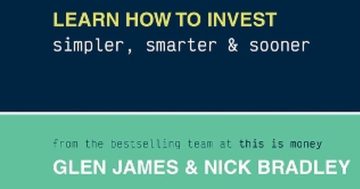Danika Miller* says money rules have changed a lot in recent years and taking financial advice from the older generation may not benefit people in the long run.
 Older generations love to pass down advice on personal finance and money management.
Older generations love to pass down advice on personal finance and money management.
But money rules have changed a lot, and each generation ushers in a new economy with new technology.
We spoke with finance experts and debunked some of the most outdated financial advice.
“Keep your money in the bank.”
Though this advice used to be pretty prudent, it’s now the baseline for personal finance.
Simply putting all your money in the bank to store is a stagnant strategy — especially when you consider how cash depreciates over time.
Willie Greer, founder of The Product Analyst, told us, “Adults, especially the boomer generation, assume that keeping money in the bank is the best practice that kids and teenagers should learn, but in reality, it’s investing that we should turn into a habit.
Saving money in the bank is just like putting it into a wallet, you’re going spend it anyway, and if it gains interest, that’s only a literal cent compared to how much it would earn if you chose to invest that money.”
At the very least, you should be using a high-yield savings account that can earn substantial interest over time.
“Pay off your mortgage ASAP.”
A mortgage can be an intimidating amount of money to borrow; you may feel like you should rush to pay it off to own your house.
But carrying a mortgage can be a healthy debt for your credit score, and earn you a profit if you decide to sell— especially considering current low interest rates.
Nishank Khanna, CMO at Clarify Capital, told us that mortgages are typically amortized loans, meaning an extra payment on the principal won’t lower your monthly payment.
“Extra payments are a good way to burn capital and create undue risk. When you pay more than is required, you lose access to capital and remain susceptible to housing market crashes.
“Paying off your mortgage early also means saying goodbye to mortgage tax benefits earlier.
“You’ll no longer be able to deduct mortgage interest, which can be disadvantageous when you consider the net loss of capital over time,” says Khanna.
“All debt is bad debt, especially from credit cards.”
Debt has earned a somewhat bad reputation for burying people’s income in borrowed money.
But not all debt is bad, and it’s essential for building up a good credit score.
Student loan and mortgage debts, for example, can be wise investments in wealth-building.
Despite its reputation, credit cards can offer free perks if you pay the balance off before interest accrues and never charge more than you can afford.
Rick Orford, author of The Financially Independent Millennial, reasons, “If the consumer treats their credit card like a fancy debit card, they can use it to rack up high-value bonuses such as cash back or travel points.
“Furthermore, some credit cards come with valuable insurances such as Travel Medical, or Collision Damage on a rental vehicle, and even extended warranties.”
“Cash is king.”
The old school saying “cash is king” means that cash is the most valuable asset for your wealth.
Our experts argue that creed is outdated.
Jamie Lima, a financial planner and founder with Woodson Wealth Management, told us, “Cash is a means to transact business and pay for goods and services.
“Unlike the interest rate environments we’ve seen in the past, think 13 per cent bank CDs, we are now in a zero-interest-rate environment for the foreseeable future. Anyone sitting in cash is not getting rich, they are getting poor slowly due to the impact inflation has on their cash.”
If you can afford it, diversifying your financial portfolio is a wise way to build wealth.
“More education means you’ll make more money.”
While college can be a good investment for some, it doesn’t guarantee a higher salary.
The average repayment timeline for a graduate degree is 23 years, and in some professions, it will only earn you a pay increase of $10,000.
Khanna points out that 40 per cent of jobs for new grads don’t require a college degree, “Take, for example, Google and Apple, which have recently done away with degree requirements altogether.
“In-demand skills, like software programming, are equally lucrative, whether self-taught or learned at school.”
“Eliminating educational requirements creates a more competitive labor force and can sometimes better posit companies to recruit the right talent.”
Before taking on student loans, consider your career path and whether that investment will pay off.
*Danika Miller is a Personal Finance Reporter.
This article first appeared at thesimpledollar.com











